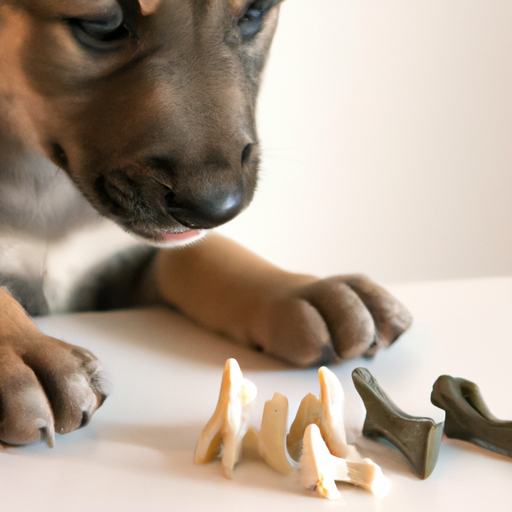A Guide to Your Puppy’s Dental Development
You’ve brought home a new puppy, and everything about them fascinates you. Among all the things you’re curious about, their dental health is a crucial aspect that you can’t overlook. In this guide, we’ll take you through the journey of your puppy’s dental development, detailing when their teeth come in, what to expect, and how to handle it.
1. Understanding the Basics of Puppy Teeth
Just like humans, puppies also have two sets of teeth throughout their lifetime – deciduous (baby) teeth and permanent (adult) teeth. Here’s a simple table to illustrate the typical timeline for a puppy’s dental development:
| Stage | Age | Teeth Development |
|---|---|---|
| 1st Stage | 2-4 weeks | Puppy teeth start to come in |
| 2nd Stage | 4-6 months | Puppy teeth fall out, adult teeth start coming in |
| 3rd Stage | By 7 months | Most adult teeth are in |
2. First Stage: Deciduous Teeth
Starting as early as two weeks of age, your puppy will begin to grow their deciduous teeth. These are also known as “milk teeth,” and they are sharp, tiny, and primarily meant for the puppy to learn how to eat solid food.
Here’s what you should know:
- Puppies have a total of 28 deciduous teeth.
- They don’t have any molars at this stage.
- The incisors are usually the first to come in, followed by canines and premolars.
3. Second Stage: The Transition
Between four to six months of age, your puppy will start to lose their deciduous teeth, and their adult teeth will begin to grow in. This stage can be uncomfortable for your puppy, causing them to chew more frequently to alleviate the discomfort.
Here’s what to expect:
- Puppies lose their deciduous teeth in the same order they came in.
- They will grow a total of 42 adult teeth.
- You may find tiny teeth around your home, but usually, puppies swallow them.
4. Third Stage: Adult Teeth
By the time your puppy is seven months old, most of their adult teeth should be in place. This set will be with your puppy for the rest of their life, so it’s essential to establish good dental hygiene habits early.
Here are some tips for maintaining your puppy’s dental health:
- Regularly brush your puppy’s teeth.
- Provide them with dental chews to help clean their teeth.
- Have regular dental check-ups with your vet.
5. Teething Symptoms and How to Help
Your puppy’s teething stage can be a tough time for both of you. You might notice your puppy:
- Chewing more than usual.
- Drooling excessively.
- Having a decreased appetite.
- Showing signs of discomfort or restlessness.
Here are some ways to help soothe their discomfort:
- Provide chew toys: These can help alleviate the discomfort and keep them from chewing on inappropriate items.
- Use frozen treats: These can help numb the gums and provide some relief.
- Maintain a routine: Regular feeding and playtimes can help your puppy feel more secure during this period.
6. Potential Dental Problems
While teething is a natural process, some potential problems could arise. If you notice any of the following, it’s best to consult your vet:
- Persistent baby teeth: These can cause problems for the incoming adult teeth.
- Misaligned teeth: This can cause difficulty eating or lead to more severe problems later on.
- Broken teeth: These can be painful and may require veterinary attention.
7. FAQs about Puppy Teething
Q: When should I start brushing my puppy’s teeth?
A: You can start brushing your puppy’s teeth as soon as their adult teeth start to come in, around four to six months of age.
Q: What should I do if my puppy is not eating well during teething?
A: Try soaking their dry food in warm water to soften it. If your puppy continues to refuse food, consult your vet.
Q: Can I still play tug-of-war with my puppy during teething?
A: Yes, but be gentle. If your puppy seems to be in pain, choose softer toys or games.
8. Conclusion
Remember, while teething can be a challenging time for your puppy, it’s a phase that will pass. By understanding what’s happening and how to assist, you’re showing your puppy that they can rely on you for comfort and care during tough times.



